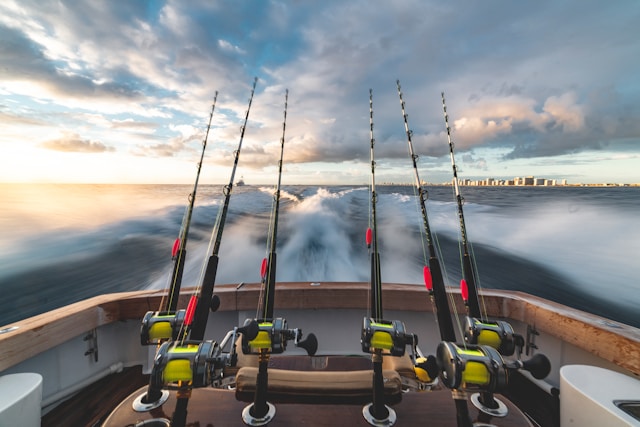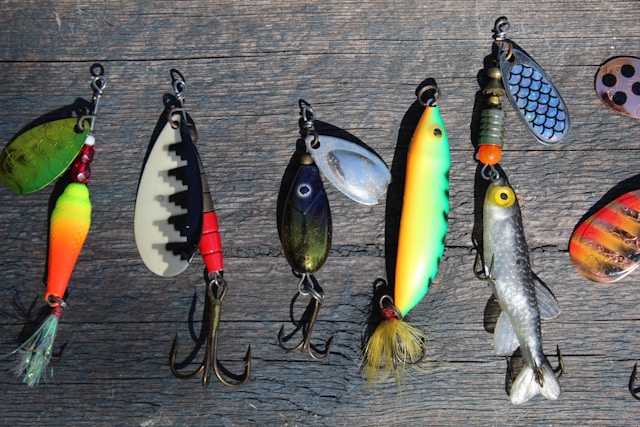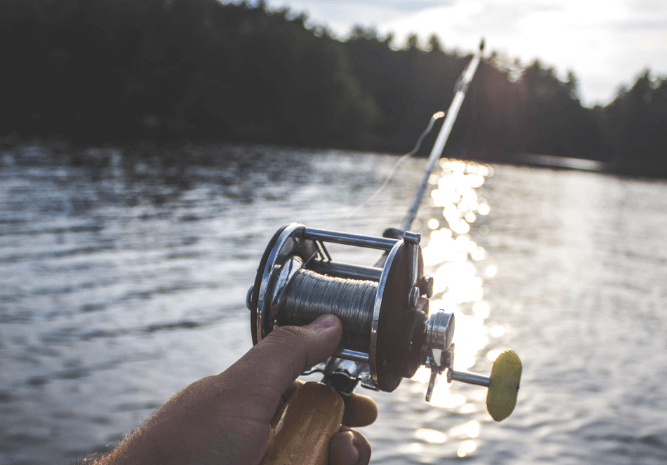Fishing in Ohio is more than a pastime; it’s a journey into nature’s aquatic wonders. Whether you’re a seasoned angler or a first-timer, understanding “how much is a Ohio fishing license” is crucial for a legal and enjoyable experience. This article dives deep into the costs and details of obtaining an Ohio fishing license, ensuring you’re well-prepared for the fishing season in Ohio.
Types of Ohio Fishing Licenses
Before delving into “how much is an Ohio fishing license,” it’s important to know the types available:
- Resident License: This type of license is exclusively for Ohio residents, meaning individuals who maintain their primary residence in the state of Ohio. Resident licenses are often the most affordable option for those who call Ohio their home;
- Non-Resident License: Non-resident licenses are designed for individuals who live outside of Ohio but wish to enjoy the state’s abundant fishing opportunities. These licenses typically come at a higher cost than resident licenses, as non-residents do not contribute to Ohio’s fishing-related conservation efforts through taxes;
- Senior License: Ohio offers discounted fishing licenses for senior citizens. This option allows older residents to continue enjoying their passion for fishing at a reduced rate. To qualify for a senior license, individuals usually need to meet certain age requirements, which can vary, so it’s essential to check the specific criteria on the Ohio Department of Natural Resources website;
- Youth License: The youth license is tailored for young anglers who are under a certain age, typically below 16 years old. This special license encourages young individuals to engage in fishing activities and is often priced at a significantly lower rate to make it accessible to families and young fishing enthusiasts.
Duration and Validity
Ohio fishing licenses operate on a specific timeframe to ensure that anglers can participate in the full fishing season within the state. The validity period for Ohio fishing licenses extends from March 1st of a given year to the end of February the following year. This encompassing timeframe covers the entire fishing season in Ohio, allowing anglers to enjoy their sport year-round. It’s important to note that Ohio’s fishing season is divided into various seasons for different species, and having a valid fishing license during this period is crucial for compliance with state regulations.
Where to Purchase Your License
Obtaining an Ohio fishing license is a straightforward process, and there are several convenient methods to choose from:
Online Purchase
When it comes to obtaining an Ohio fishing license, the online method offers a straightforward and efficient option. Here are the key details:
- Website: Visit the official Ohio Department of Natural Resources (ODNR) website at fishohio.com to purchase your fishing license online, using a credit card for payment;
- Process: The online process is user-friendly and allows you to print your fishing license immediately after purchase;
- Cost: An annual resident fishing license is priced at $25, while non-resident anglers can opt for a three-day tourist permit at $19. Furthermore, specific permits for various species, such as trout or Lake Erie walleye, are also available for purchase.
In-Person Purchase
For those who prefer a more traditional approach, in-person purchases are widely available throughout Ohio. Here’s what you need to know:
- Authorized Retailers: Ohio residents can buy their fishing licenses at authorized retailers, including major stores like Walmart, Bass Pro Shops, Meijer, Discount Drug Mart, Gibbs Tackle Shack, and Harrison’s Sport Shop. These retailers have a presence in all Ohio counties;
- Local Sporting Goods Stores: Many local sporting goods stores also have the authorization to sell Ohio fishing licenses. Walmart stores across Ohio offer this service as well;
- ODNR Offices: If you’re near one of Ohio’s wildlife area offices or regional headquarters managed by ODNR, staffed customer service centers at these locations can assist with licensing and other outdoor recreation permits;
- Requirements: When opting for an in-person purchase, be sure to have the proper identification and payment method on hand;
- Additional Info: The ODNR website provides a comprehensive list of authorized locations, making it easy to find the nearest vendor. You can also search by county or city to narrow down your choices.
Phone Purchase
If you prefer the convenience of purchasing your fishing license over the phone, here are the details:
- Contact Number: To initiate the process, simply call 1-866-703-1928;
- Availability: This phone service is available Monday through Friday, from 8:00 am to 5:00 pm Eastern time;
- Additional Fee: Keep in mind that there is an additional $5 fee when purchasing your fishing license over the phone or at any licensing agents within Ohio state parks.
Cost Considerations
Understanding the cost structure of Ohio fishing licenses is essential. Here’s a breakdown:
- Resident Prices: Ohio offers various pricing options for residents, including an annual adult fishing license for $19, a youth license (ages 16 – 17) at $10, and senior citizen licenses (66 and older) available for $10;
- Non-Resident Prices: Non-residents can obtain a fishing license starting at $50 for three days, with a seven-day license priced at $70. An annual non-resident permit is available for $125.
Required Information

To streamline the process of purchasing your Ohio fishing license, it’s important to have the following information readily available:
| Field | Description |
|---|---|
| Full Name | Your full legal name is the cornerstone of your application. It is used for identification purposes and must precisely match the information on your official identification documents. Inaccuracies in your name could lead to issues with your license application or future interactions with authorities. Make sure to enter your name exactly as it appears on your driver’s license, passport, or other government-issued ID. |
| Address | Your current residential address is another critical piece of information. It’s necessary for maintaining accurate records and contact information. This address ensures that any correspondence regarding your fishing license, including renewal notices or regulatory updates, reaches you without any delays. Be sure to provide your complete and up-to-date address, including street number, city, state, and ZIP code. |
| Date of Birth | Your date of birth is required to confirm your eligibility for certain license types and to determine any age-related discounts or requirements. Different rules and fees may apply based on your age, so accurate information is vital. Make sure to enter your birthdate in the format required by the application, typically month/day/year, to avoid any processing issues. |
| Social Security Number (for U.S. citizens) | If you are a U.S. citizen, you will be asked to provide your Social Security number during the license application process. This number helps verify your identity and ensures compliance with state regulations. It is essential for maintaining the integrity of the licensing system and preventing fraud. |
Special Regulations and Permissions
Lake Erie Charter
Fishing on a Lake Erie charter boat is a fantastic way to experience some of the best fishing opportunities the lake has to offer. However, it’s important to note that a special license is required for this activity. This license is distinct from a regular fishing license and is necessary to participate in charter fishing trips on Lake Erie. It’s crucial to obtain this license before embarking on your charter fishing adventure.
Obtaining a special license for Lake Erie charter fishing typically involves the following steps:
- Check Eligibility: Ensure that you meet the eligibility criteria for the special license. These criteria may vary by state and may include age and residency requirements;
- Visit the Relevant Agency: Contact the appropriate state agency responsible for issuing fishing licenses. This is often the Department of Natural Resources (DNR) or a similar authority;
- Provide Information: Be prepared to provide personal information, such as your name, address, and Social Security number. You may also need to specify the dates of your charter fishing trip;
- Pay Fees: There is usually a fee associated with the special Lake Erie charter fishing license. Make sure to pay the required fee, which can vary depending on factors like duration and residency status;
- Receive Your License: Once your application is approved and the fee is paid, you will receive your special Lake Erie charter fishing license. It’s essential to carry this license with you at all times while on the charter boat;
- Adhere to Regulations: Familiarize yourself with the specific regulations associated with Lake Erie charter fishing, including bag limits, size restrictions, and catch-and-release guidelines. Failure to follow these regulations can result in fines and penalties.
Trout Fishing
Trout fishing is a popular recreational activity in various locations, and special regulations often apply. Depending on the specific location and season, you may need an additional permit to engage in trout fishing. These permits are put in place to manage trout populations and protect their habitats.
To determine whether you need an additional permit for trout fishing, consider the following factors:
- Location: Different states and regions may have varying requirements for trout fishing permits. Check with the local fish and wildlife agency or the DNR to find out the specific rules in your area;
- Season: Trout fishing seasons can vary throughout the year. Some seasons may require a separate permit, while others may not. Be sure to check the opening and closing dates of the trout fishing season to ensure compliance;
- Type of Waterbody: Some waterbodies, such as designated trout streams or lakes, may have stricter regulations and permit requirements. Make sure to research the specific waterbody where you intend to fish;
- Species: Different species of trout may have specific regulations. Common trout species include rainbow trout, brown trout, and brook trout. Verify the regulations for the specific trout species you plan to target.
If it is determined that you need an additional permit for trout fishing, follow these steps:
- Research Regulations: Gather information on the trout fishing regulations and permit requirements for your chosen location. This can often be found on the website of the local fish and wildlife agency;
- Apply for the Permit: Visit the agency’s website or contact them directly to apply for the necessary trout fishing permit. You may need to provide personal information and pay any associated fees;
- Understand the Rules: Ensure that you understand and abide by all rules and regulations associated with trout fishing, including catch limits, size restrictions, and any special rules for specific waterbodies;
- Carry Your Permit: Once you’ve obtained the permit, carry it with you while trout fishing. Some locations may require anglers to display their permits visibly.
Why You Need a Fishing License in Ohio

Legal Requirements
Carrying a valid fishing license is a legal requirement in Ohio, and non-compliance can lead to various penalties. Here are some key points you need to know:
- Mandatory for Most Anglers: In Ohio, anyone aged 16 and older who wants to fish in public waters must possess a valid fishing license. This requirement includes residents and non-residents alike. So, whether you’re a local or just visiting Ohio for a fishing trip, you need a license if you meet the age criteria;
- Types of Licenses: Ohio offers various types of fishing licenses, including annual, one-day, and three-day options. These licenses grant you permission to fish in different water bodies across the state. The choice of license depends on your fishing plans and how often you intend to fish in Ohio;
- Wildlife Officer Inspections: Wildlife officers in Ohio are authorized to request your fishing license at any time while you are fishing. Failing to present a valid license upon request can result in fines or other penalties. It’s essential to carry your fishing license with you whenever you engage in fishing activities;
- Online and Retail Options: Obtaining a fishing license in Ohio is convenient. You can purchase one online through the Ohio Department of Natural Resources website or in person at various retail locations, including bait shops, sporting goods stores, and department stores.
Conservation Efforts
Beyond the legal requirements, fishing licenses play a crucial role in supporting conservation efforts in Ohio. Here’s how:
- Funding Conservation: The fees collected from fishing licenses are a significant source of revenue for the Ohio Department of Natural Resources (ODNR). These funds are channeled into various conservation programs aimed at preserving Ohio’s aquatic ecosystems and wildlife habitats;
- Habitat Restoration: Conservation efforts funded by fishing license fees include habitat restoration projects. These projects focus on improving the quality of aquatic environments, which benefits both fish populations and other wildlife species that depend on healthy water ecosystems;
- Fish Stocking Programs: Ohio conducts fish stocking programs in its lakes, rivers, and ponds. These programs are essential for maintaining healthy fish populations and ensuring a diverse and sustainable fishing experience for anglers;
- Educational Initiatives: Part of the funds generated through fishing licenses goes towards educational programs that promote responsible fishing practices, wildlife awareness, and the importance of conservation among anglers and the general public;
- Scientific Research: License fees also support scientific research projects aimed at understanding Ohio’s aquatic ecosystems better. This research contributes to informed conservation decisions and sustainable management of fish populations.
Conclusion
Understanding “how much is an Ohio fishing license” is your first step to a rewarding fishing adventure in the Buckeye State. With the right license, you’ll not only abide by the law but also contribute to the preservation of Ohio’s aquatic ecosystems. So gear up, get your license, and enjoy the rich fishing experiences that Ohio has to offer!
FAQ
Yes, Ohio offers a one-day fishing license for both residents and non-residents.
Fishing without a license can lead to fines and legal consequences. It’s always best to have a valid license.
Yes, Ohio typically offers a few free fishing days each year. Check the Ohio Department of Natural Resources website for dates.
No, Ohio fishing licenses are only valid within the state. You’ll need a separate license for other states.



